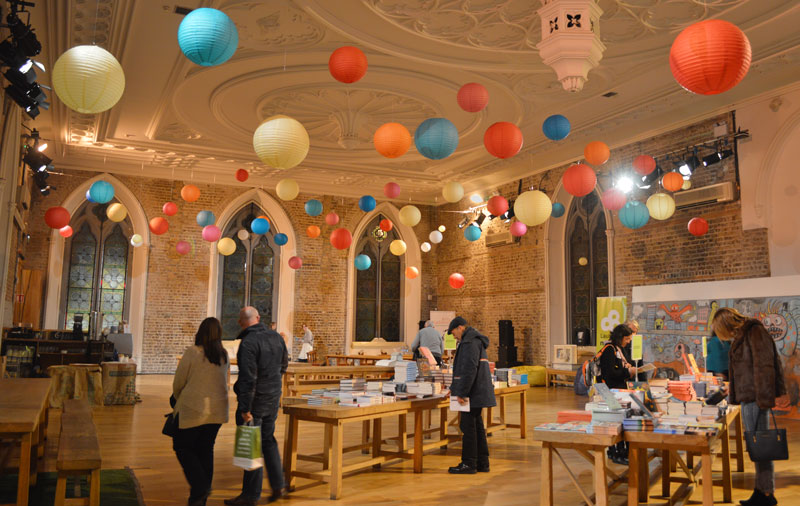
Out of dozens of events at the Dublin Book Festival, “Stand in Awe of All Mná” stood out. One of many literary events contained in the programme for this year’s Dublin Book Festival, the event aimed to offer practical advice to writers, particularly women writers, and to discuss the general experiences of being a woman in the literary world.
The first component, a “Business of Writing” seminar, was led by Gráinne Clear, Publishing Manager and Art Director at Little Island, an Irish children’s and young people’s book publishing agency. Clear offered practical advice to those involved in the literary world, writers and publishers alike. She was incredibly well-informed and particularly genuine in her guidance, proving her statement that “the publisher is not the bad guy”.
She discussed the practical challenges of publishing a book, urging writers not to undersell their talent, to examine their terms with those they work with and telling them “please don’t do events for free”. She also talked extensively about the challenges of being a female writer, citing the disparity between the poor representation of women in publishing, book prizes and reviews, and the high female readership of books in general as issues.
Clear spoke from her own experiences about how women tend to be “wary of getting notions about themselves” as writers, and suggested that they try to be more direct, and to talk about themselves and other female authors more often. Clear’s seminar gave a refreshingly transparent account of the business, and showed a great level of professionalism whilst still remaining approachable.
The second component of the event saw Julieann Campbell, Felicity McCall and Freya McClements discuss “Working Your Own Career” drawing on their own experiences as writers and as a collaborative group to offer advice on writing as a career. All three speakers, along with Lynne Edgar, who was unable to attend, are a part of Literary Ladies, a group of writers involved in organising community based literary events and supporting other artists. All those present had extremely impressive backgrounds in writing, and it showed in their advice.
They talked about the importance of reliability, with McClements saying: “We do what we say we will, and we do it when we say we will.” They built on Clear’s previous point regarding fees and not being afraid to know your own worth. By not charging for their services, writers undermine the value of both themselves and other artists, they all agreed, with McCall stating that she never would have worked for free in her journalistic career, and that she tries to apply the same attitude to her career as an artist.
They offered similar advice to writers, saying that female writers need to learn to be more involved in elevating their own careers and those of other female writers, with Campbell offering the invaluable advice to “learn the art of saying no”. Overall, the group displayed great honesty and experience, and showed their genuine interest in developing the careers of other artists and encouraging artists to get involved in their local community.
The last component of the afternoon was an open forum with authors Mia Gallagher and Sarah Maria Griffin discussing their experiences as writers, and their challenges as female artists. Griffin prefaced the discussion by acknowledging the fact that the art industry – in Ireland and globally – is currently being gripped by sexual harassment and assault allegations.
The two shared anecdotes of their experiences, with Griffin making mention of a particular review of her work that referred to her as a “needy hipster”, acknowledging the use of “needy” as a particularly loaded, gendered term. Gallagher also opened discussion on how female artists tend to be far more wary of being direct, taking the example of their tendency to preface reasonable requests with “could I just ask”, and suggesting that minimising small self-deprecations such as this end up strengthening female artists’ positions. The two provided a great view into the working life of writers, and the difficulties they face as women in a field with a lot of improvements to be made in terms of gender equality.
Overall, the event was extremely informative for all writers, particularly female writers and those interested in elevating the positions of women in the literary world. All those involved shared their varied experiences and achievements in such a way that would inspire anyone to take charge of their work, and demystified many elements of a profession that may seem intimidating to newcomers.






